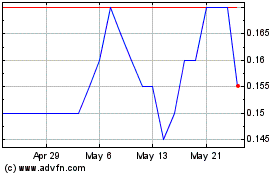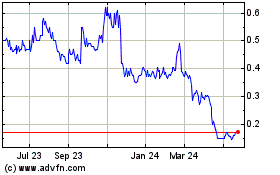Alaska Energy Metals Corporation (TSX-V: AEMC, OTCQB: AKEMF)
(“AEMC” or the “Company”) is pleased to announce the completion of
its 2023 exploration program at the 100% owned Nikolai Nickel
Project in central Alaska (Figure 1).
2023 Exploration Update
- Eight diamond drill holes, totaling 4,138 meters (m), were
drilled over a 1.2-kilometer (km) strike length of the Eureka Zone.
Results for the first two drill holes EZ-23-001 & EZ-23-002
have been received, with assay results for the remaining six holes
pending.
- In addition to the drill program, the Company carried out
27-line km of ground-based Controlled-source Audio-frequency
Magnetotellurics (CSAMT) surveys on the Eureka and Canwell claim
blocks, as well as 16-line km of ground-based Electromagnetic (EM)
surveys on the Canwell claim Block. The surveys, in conjunction
with the recently purchased historical data set, will be used to
analyze and prioritize drill targets for the 2024 exploration
campaign.
- The 2023 exploration drill program was completed using one
surface diamond drill rig (Figure 2). The program consisted of
eight holes drilled into the main Eureka Zone mineralization (Table
1). EZ-23-001 was drilled ~100m southwest of historical drillhole
PNI-10-036 to validate geology and historical assay results. The
additional seven holes were drilled at approximately 250m to 300m
offsets to test grade and thickness of a 1.2-km strike length of
the Eureka Zone (Figure 3).
Figure 1. Nikolai Project
Property Location Map.
Figure 2. Diamond drill rig on
the Nikolai Nickel Project.
Table 1. Completed 2023 Diamond
Drill Holes
Figure 3. Drill hole location
map, surface geology and surface trace of Eureka Zone 2
mineralization.
Hole EZ-23-001 Summary
- The hole pierced 16.2m of overburden and then drilled into a
poorly mineralized gabbro from 16.2m to 148.0m. The gabbroic unit
transitioned into a weakly mineralized pyroxenite-rich unit from
148.0m to 220.1m.
- The main mineralized Eureka zone was intersected at target
depth from 220.1 to 561.7m downhole, with assays grading
341.6m @ 0.23% Ni, 0.08% Cu, 0.02% Co, 0.32% Cr, 9.94% Fe,
0.107 g/t Pd, 0.051 g/t Pt and 0.011 g/t Au (0.34% NiEq)
(Table 2 and Figure 4).
- The main mineralized zone was hosted within a pervasively
serpentinized peridotite, with varying amounts of disseminated
sulfides, with up to 10% disseminated sulfides within the Core
Eureka Zone 2 (Figure 5).
- Grades and sulfide abundance within the main mineralized zone
decrease near the contact with a pyroxenite intrusive rock phase
from 593.6m to 608.7m.
- Another pervasively serpentinized peridotite, with an increase
in disseminated sulfides, was intersected from 608.7m to 614.6m
(EOH). This lower peridotite unit assayed 49.4m @ 0.15 Ni%,
0.02 Cu%, 0.02% Co, 0.44 Cr%, 10.25% Fe, 0.017 g/t Pd, 0.031 g/t Pt
and 0.008 g/t Au (0.21% NiEq) and remains open at
depth.
Table 2. Significant
Intersections from EZ-23-001 & EZ-23-002
Figure 4. Cross section through
EZ-23-001. Location of section line A-A’ displayed on Figure 3. The
Main Eureka Zone (EZ2) has a higher-grade core of 0.43% NiEq over
107m thickness within an envelope of lower grade (0.27-0.31% NiEq)
metal concentration, for an estimated true width of 315.8m.
Note: Chrome and iron are reported in the drilled
interval but are not included in the NiEq calculation.
Figure 5. Example of Core Eureka
Zone 2 mineralization: EZ-23-001: 390.2m – 390.4m
EZ-23-002 Summary
- This hole drilled into 7.5m of overburden, and then into the
main mineralized Eureka Zone.
- The Eureka zone was intersected from 7.5m to 304.1m downhole,
with assays grading 296.6m @ 0.23% Ni, 0.09% Cu, 0.02% Co, 0.30%
Cr, 9.92% Fe, 0.115 g/t Pd, 0.052 g/t Pt and 0.013 g/t Au (0.35%
NiEq) (Table 2 and Figure 6).
- The main mineralized zone was hosted within a pervasively
serpentinized peridotite, with varying amounts of disseminated
sulfides, and up to 10% disseminated sulfides within the Core
Eureka Zone 2.
- Grades and sulfide abundance within the main mineralized zone
decrease near the contact with a pyroxenite intrusive phase from
304.1m to 323.5m.
- Another pervasively serpentinized peridotite, with an increase
in disseminated sulfides, was intersected from 323.5m to 385.3m
(EOH). This lower peridotite unit assayed 61.8m @ 0.15 Ni%,
0.03 Cu%, 0.01% Co, 0.43 Cr%, 9.87% Fe, 0.019 g/t Pd, 0.028 g/t Pt
and 0.009 g/t Au (0.19% NiEq) and is still open at
depth.
- The company is currently evaluating the recently purchased
historical drill hole dataset for indications of whether this lower
serpentinized dunite intersected in EZ-23-001 and EZ-23-002 could
be a separate mineralized intrusion along the entire strike length
of the Eureka Zone.
Figure 6. Cross section through
EZ-23-002. Location of section line B-B’ displayed on Figure 3. The
Main Eureka Zone (EZ2) has a higher-grade core of 0.43% NiEq over
79.7m thickness within an envelope of lower grade (0.27-0.33% NiEq)
metal concentration, for an estimated true width of 281.1m.
Note: Chrome and iron are reported in the drilled
interval but are not included in the NiEq calculation.
CSAMT/Geophysical Surveys
- A total of 20km was completed over the Canwell claim block,
with an additional 7 line-km completed over the Eureka Zone.
- The purpose of the CSAMT surveys was to map subsurface geology
and to analyze whether known mineralization could be detected
within the Eureka Zone using this survey method.
- An additional 16 line-km of EM surveys were completed over the
Canwell claim block where CSAMT surveys had detected ultramafic
rocks in the subsurface. The Company is awaiting the results of the
EM surveys.
Core Processing & Quality Assurance and Quality
Control (QA/QC)
Alaska Energy Metals adheres to stringent Quality Assurance –
Quality Control (“QA/QC”) standards for its Nikolai Nickel Project
to ensure the best practices for logging, sampling, and analysis of
samples. For every 10 core samples, one geochemical blank, one
coarse reject, one pulp duplicate, or one nickel – copper –
platinum group element - gold certified reference material
standards (CRMs) are inserted into the sample stream.
Drill core was flown by helicopter daily from drill sites and
transported in secured wooden core boxes to the core logging
facilities in Delta Junction, Alaska. Detailed logging and sampling
data was captured on tablets using MX Deposit software. Samples
were labeled by geologists and sawn in half with a diamond blade,
with half being inserted into a labeled, bar coded, sample bag. The
other half of the core was returned to the wooden boxes for archive
at a secure location. Samples are transported in sealed bags to SGS
Laboratories in Burnaby, B.C. utilizing a contracted transportation
carrier.
Once samples are received at the laboratory, they are weighed,
dried, and crushed to 75% passing 2mm. The samples are then riffle
split and pulverized to 85% passing 75 microns. The samples are
pulverized in a zirconia bowl, to prevent the contamination of Fe
and Cr. Au, Pt, & Pd are analyzed by fire assay with ICP-AES
finish (GE_FAI30V5). Ag is analyzed using a 4-acid digest with AAS
finish (GE_AAS42E50). The remaining 30 elements are analyzed using
sodium peroxide fusion with ICP-AES finish (GE_ICP90A50).
Qualified PersonGabriel Graf, the Company’s
Chief Geoscientist, is the qualified person, as defined under
National Instrument 43-101 Standards of Disclosure for Mineral
Projects, responsible for, and having reviewed and approved, the
technical information contained in this news release.
For additional information, visit:
https://alaskaenergymetals.com/
About Alaska Energy MetalsAlaska Energy Metals
Corporation is focused on delineating and developing a large
polymetallic exploration target containing nickel, copper, cobalt,
chrome, iron, platinum, palladium, and gold. Located in central
Alaska near existing transportation and power infrastructure, the
project is well-situated to become a significant, domestic source
of critical and strategic energy-related metals for the American
market.
ON BEHALF OF THE BOARD“Gregory Beischer”Gregory
Beischer, President & CEO
FOR FURTHER INFORMATION, PLEASE CONTACT:Gregory
A. Beischer, President & CEOToll-Free: 877-217-8978 | Local:
604-638-3164
Sarah Mawji, Public RelationsFinal Edit Media and Public
Relations Email: sarah@finaleditpr.com
Some statements in this news release may contain forward-looking
information (within the meaning of Canadian securities
legislation), including, without limitation, that a) will receive
all assay results for samples submitted, b) complete metallurgical
and deportment studies, and c) calculate a maiden inferred
resource. These statements address future events and conditions
and, as such, involve known and unknown risks, uncertainties, and
other factors which may cause the actual results, performance, or
achievements to be materially different from any future results,
performance, or achievements expressed or implied by the
statements. Forward-looking statements speak only as of the date
those statements are made. Although the Company believes the
expectations expressed in such forward-looking statements are based
on reasonable assumptions, such statements are not guarantees of
future performance and actual results may differ materially from
those in the forward-looking statements. Factors that could cause
the actual results to differ materially from those in
forward-looking statements include regulatory actions, market
prices, and continued availability of capital and financing, and
general economic, market or business conditions. Investors are
cautioned that any such statements are not guarantees of future
performance and actual results or developments may differ
materially from those projected in the forward-looking statements.
Forward-looking statements are based on the beliefs, estimates and
opinions of the Company's management on the date the statements are
made. Except as required by applicable law, the Company assumes no
obligation to update or to publicly announce the results of any
change to any forward-looking statement contained or incorporated
by reference herein to reflect actual results, future events or
developments, changes in assumptions, or changes in other factors
affecting the forward-looking statements. If the Company updates
any forward-looking statement(s), no inference should be drawn that
it will make additional updates with respect to those or other
forward-looking statements.
Neither the TSX Venture Exchange nor its Regulation Services
Provider (as that term is defined in the policies of the TSX
Venture Exchange) accepts responsibility for the adequacy or
accuracy of this press release.
Photos accompanying this announcement are available
at:https://www.globenewswire.com/NewsRoom/AttachmentNg/c6c5e5f0-c223-44b0-ab17-7486b703dfb8https://www.globenewswire.com/NewsRoom/AttachmentNg/2851c854-1ea2-4529-882f-bb3973d9f511https://www.globenewswire.com/NewsRoom/AttachmentNg/82deceba-b506-43d7-b7c6-2a9d7c6d73fdhttps://www.globenewswire.com/NewsRoom/AttachmentNg/fb719987-ae34-4650-8ea6-b1bec8a8b5b9https://www.globenewswire.com/NewsRoom/AttachmentNg/57acc906-073b-41ac-b823-1c3bbce55aa0https://www.globenewswire.com/NewsRoom/AttachmentNg/1306bd58-50f4-4040-a2ac-19cfd8f1087ahttps://www.globenewswire.com/NewsRoom/AttachmentNg/10e574cd-e7f0-4814-a964-acf676a248e0https://www.globenewswire.com/NewsRoom/AttachmentNg/a4abc41f-b262-4e41-bec0-ee604c42d154
Alaska Energy Metals (TSXV:AEMC)
Historical Stock Chart
From Dec 2024 to Jan 2025

Alaska Energy Metals (TSXV:AEMC)
Historical Stock Chart
From Jan 2024 to Jan 2025
